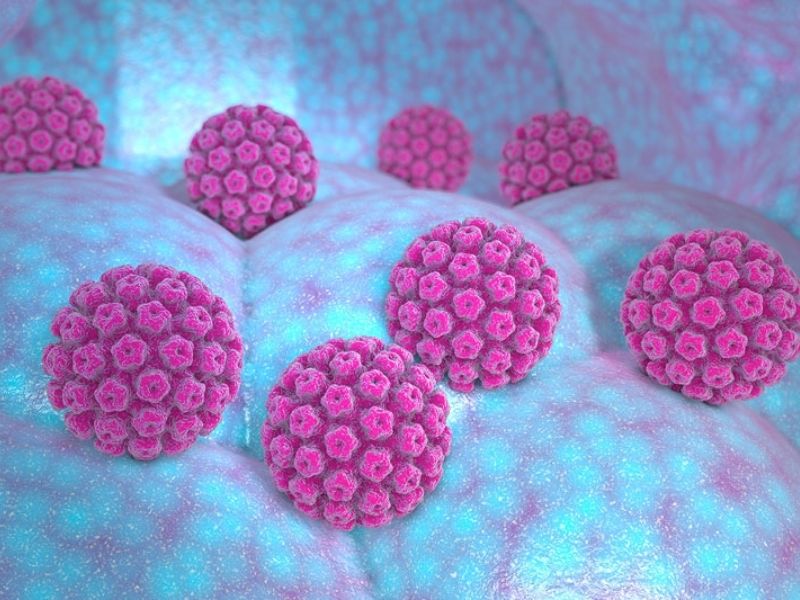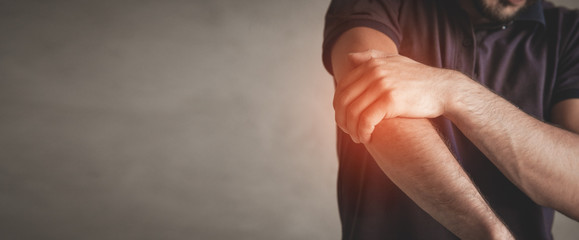
The HPV vaccine protects from the human papillomavirus (HPV), a predominant sexually transmitted infection. Over 40 known strains of HPV affect people. Over 80% of sexually active people have HPV at a point in their lives since the spread of HPV infection is through sex.
Many HPV-infected people do not show symptoms, and the infection clears independently. However, some infections progress to cause cancer later in life.
HPV infections that don’t self-resolve can cause the following.
- Penile cancer
- Vaginal cancer
- Anal cancer
- Genital warts
- Vulvar cancer
- Oropharyngeal cancer (cancer that affects the back of the throat)
- Cervical cancer
Getting the HPV vaccine can protect against HPV infection and reduce the risk of HPV-related cancer.
How does the vaccine work?
The available HPV vaccine can protect against six HPV strains that cause cervical, vulvar, penile, throat, and anal cancer. The most common type of HPV-related cancer affecting women is cervical cancer and throat cancer in men.
Who needs the HPV vaccine?
The general recommendation for HPV vaccination include:
-
For children and adults between 9 – 26 years
HPV vaccination is more effective when administered between 9 and 12 years. Within this age, the vaccine gives higher protection against HPV cancers. Until age 26, anyone who hasn’t gotten the complete vaccine dose can still take the HPV vaccine.
-
Adults between 27 – 45 years
Getting the HPV in adult age from 27 – 45 years is not recommended. Within this period, the vaccine offers less protection because they have already had exposure to the HPV virus. However, healthcare providers may recommend HPV vaccination for some adults.
Who should not have HPV vaccination?
The following people should not get the HPV vaccine.
- Pregnant people
- People with an allergic reaction to a previous dose of the vaccine or an ingredient in the vaccine
Your healthcare professional needs to know about any severe allergies, including an allergy to latex or yeast. If you have any moderate to severe illness, you need to wait until you are well to get the HPV vaccine.
Can you have HPV vaccination at any age?
HPV vaccination is most effective when administered before age 13, but people can still get it before their 26th birthday. Getting the HPV vaccine before you are sexually active is best.
Research also shows that young teens have a better immune response to the HPV vaccine than people in their late teen years.
Are different types of HPV vaccines available?
HPV covers over 200 strains of the virus, but about 40 spread through sexual contact. Among these 40 HPV strains, 12 strains cause cervical cancer. Three HPV vaccines are available that protect against these 12 HPV strains.
-
Gardasil 9
This vaccine protects against nine HPV that cause cancer, including the high-risk strains. It also prevents up to 90% of cervical cancer cases.
-
Gardasil and Ceravarix
These vaccines can prevent the high-risk HPV strains but protect about 70% of cervical cancer.
How many doses of the HPV vaccine are available?
The number of doses you need depends on the age you get the first dose.
- Those getting the vaccine before age 15 need two HPV vaccine doses, given 6 – 12 months apart.
- Three doses are best for people getting the vaccine from age 15 to 26. The second dose will be 1 – 2 months after the first, and the third, six months following the first vaccine dose.
How does the HPV vaccine work?
The HPV vaccine has stimulation of HPV, not the live virus that causes HPV infection or cancer. The HPV vaccine stimulates the production of antibodies against HPV. When you have exposure to the real HPV, the antibodies will fight off the infection.
What advantages does the HPV vaccine offer?
The main advantage of HPV vaccination is reducing the risk of HPV-related cancers. HPV is common, affecting many people at some point. Although some infections may not cause cancer, there is no way to determine the infections that will progress to cancer. HPV vaccination offers the best protection for now.
What are the risks of HPV vaccination?
Only a few risks may arise from getting the HPV vaccine. Similar to other vaccines, possible side effects are mild. The risk of a severe reaction if you are allergic to yeast, latex, or any ingredient in the vaccine is present. Ensure you consult your healthcare provider if you have any allergies.
Does HPV vaccination have any side effects?
Like other vaccines, the mild side effects of the HPV vaccine last for a short while, and there is no long-term side effect.
Some common HPV vaccine side effects include:
- Dizziness
- Fever
- Joint pain or muscle pain
- Tiredness or headache
- Severe allergic reactions
- Redness, swelling, or pain at the site of injection
- Nausea
Is getting the HPV vaccine safe?
The HPV vaccine is safe. Before approval, the HPV vaccine got tested on many people in different parts of the world and under continuous monitoring for serious side effects.
How effective is HPV vaccination for preventing HPV?
When you get the right doses administered within the correct intervals at the recommended age, HPV vaccines can prevent 90% of cancer-causing HPV.
Current research shows that fewer young adults and teens report genital warts, and the number of cervical precancers is less since HPV vaccination became available.
How long does the HPV vaccine protect against HPV?
The available research findings do not show evidence that the HPV vaccine’s effectiveness reduces over time. Research on vaccinated people is ongoing to ensure no need for booster shots.
What do I need to ask my healthcare professional?
Many people have questions before getting the HPV vaccine, and this is normal. Some questions to ask your healthcare professional about the vaccine include:
- How does the vaccine work?
- When do I need the vaccine?
- What is the level of effectiveness of HPV vaccines?
- What are the side effects of the vaccine?
- Is there a reason why I shouldn’t get the vaccine?
- Where do you administer the vaccine?
If you need an HPV clinic in London offering HPV vaccination, visit Medical Express Clinic. Call us on 020 7499 1991 to inquire about HPV vaccination or book an appointment with our doctor.
Frequently asked questions on HPV vaccine
Is the HPV vaccine effective if I already have an HPV infection?
Getting vaccinated against HPV protects you from the HPV strains you haven’t contracted. The vaccine is not effective for existing infections.
Should I get vaccinated if I have an HPV infection?
Yes, you should. Vaccination can protect you from other HPV strains you do not have. You can get the HPV vaccine if you have HPV. If you are still in the recommended age range, get the HPV vaccine.
Do women vaccinated for HPV still need Pap smears?
Yes, they do. Vaccination doesn’t protect against all HPV strains that cause cancer. Women vaccinated for HPV need routine Pap smears. Routine cervical cancer screening is part of every woman’s reproductive healthcare.
Why is HPV vaccination necessary for men?
HPV spreads through sexual contact, and some strains of the virus can cause certain types of cancer in men, such as penile and throat cancer.
Is HPV vaccination mandatory?
Some schools require students to get the HPV vaccine before enrollment, and it is part of the immunisation program in childhood.


